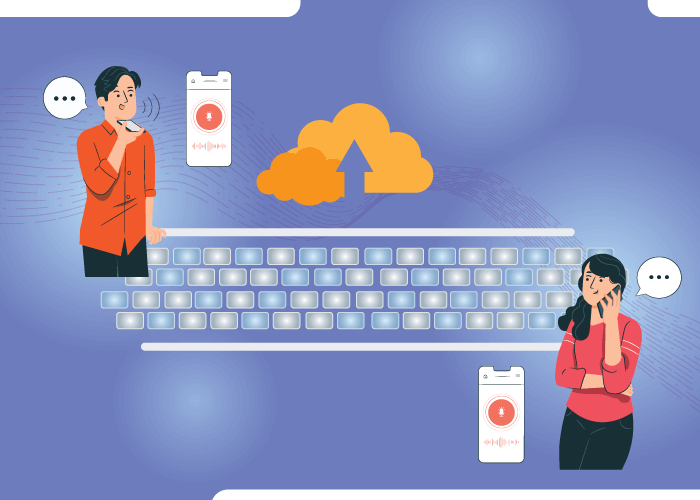Communication is the lifeblood of any business and when it comes to selecting the right modern business phone system. When you look for a business phone solution, you’ll see various terms such as VoIP phone system, cloud communication solution, cloud telephony, etc. While most of these terms refer to the same system, they have differences that could impact your business operations.
In this article, we’ll look closely at VoIP and cloud telephony systems. We’ll cover:
Choosing the Right Business Phone System
Business phone systems offer many communication options for companies ranging from small business VoIP services to advanced PBX systems. In today’s digital landscape, these systems handle audio, video, and text communication efficiently. They’re cost-effective and allow you to connect with multiple customers simultaneously.
Both VoIP and cloud telephony have their advantages and disadvantages. So, your choice should align with your business size, budget, scalability needs, and existing IT infrastructure. Additionally, consider the long-term needs of your business to make a future-proof choice.
What is VoIP and How it Works?
Voice over internet protocol (VoIP), an integral part of modern communication, enables users to place calls over the internet.
Essentially, it leverages the internet to transmit your voice, making it a cost-effective and flexible way to communicate. In other words, it eliminates the need for traditional phone lines.
Services like Skype, Zoom, and WhatsApp use VoIP to enable voice and video calls over the internet. Your voice or video data is turned into small digital packets, sent over the internet, and delivered.

The ability to send calls through the internet opens the door for many communication features like international forwarding and call routing. In fact, VoIP is commonly used for international calls, especially for long-distance calling. Companies like Global Call Forwarding provide international VoIP numbers that businesses can use to communicate with their local clientele.
What is Cloud Telephony and How it Works?
Cloud telephony is a communication system hosted and managed through the cloud, allowing users to make and receive phone calls from any location.
It is an inherently cloud-based phone system where the infrastructure, services, and data are hosted in remote or cloud data centers.
Since it operates in a virtual space, this system also has several features including call recording, IVR, etc. This way, you can turn any device (smartphone, laptop, etc) with a robust internet connection into a cloud phone.
Many call centers and customer support centers use cloud telephony to manage incoming and outgoing calls. Instead of traditional phone systems, they use cloud-based systems that route calls to available agents, where they are located.
Learn more about how cloud telephony works here:
VoIP Versus Cloud Telephony
So, with both phone systems sounding the same, how exactly are they different?
VoIP sends voice calls over the internet or IP networks. This gives businesses the flexibility to manage their equipment on-site or use a cloud provider.
On the other hand, cloud telephony is a broader communication platform. It uses VoIP alongside other technology to send calls, call data, video, and messages over the internet.
The term cloud simply refers to how VoIP company servers collaborate. While most cloud telephony platforms use VoIP, not all VoIP systems are in the cloud.
A lot of small businesses may use a VoIP system that they manage on-site. In such cases, they own and manage the VoIP infrastructure and hardware within the office. In contrast, larger companies may opt for cloud telephony solutions where all the phone systems components are hosted in the cloud and managed by their VoIP provider.
— Luke Genoyer, Business Development Manager, Global Call Forwarding
Modern Business Communications
Effective communication is the linchpin that connects businesses to their customers and partners. As you can see, there is a spectrum of choices to enhance your business communication infrastructure.
VoIP and cloud telephony, while related, have nuanced differences that can influence your business operations. It is crucial to plan and make a future-proof decision.
Global Call Forwarding offers state-of-the-art business communication solutions, whether you’re a small enterprise or a global corporation. Take the next step and reach out to us to elevate your business communications.
Call us or chat with our experts online to unlock your business’s potential today!


